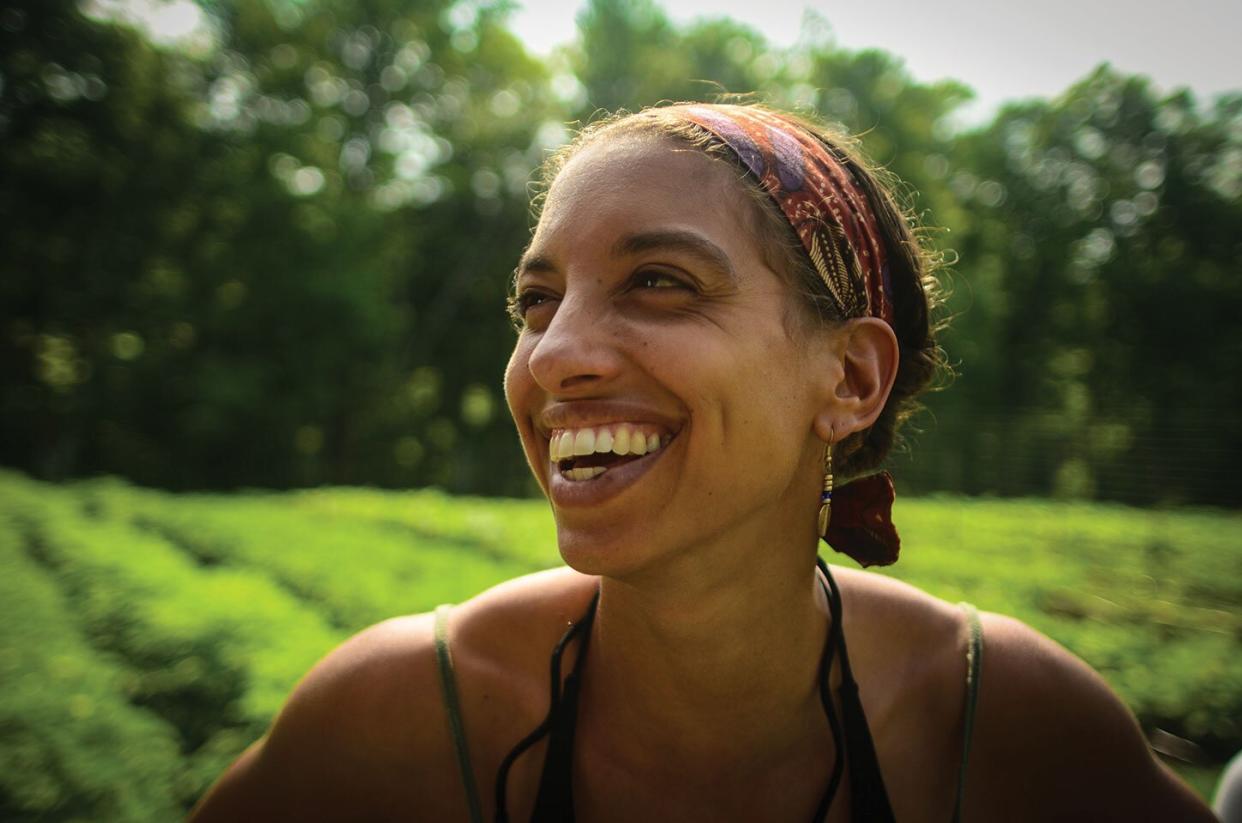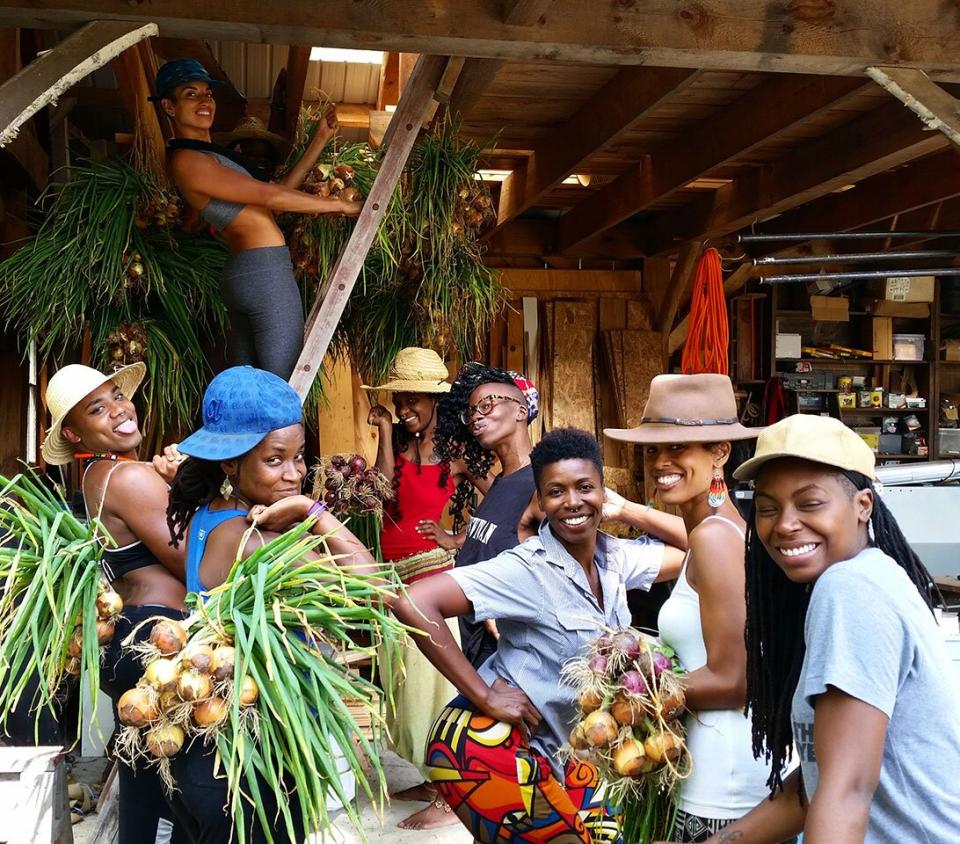Farming While Black: How One Woman Is Improving Access to Healthy Food for Black Families

Thirteen years ago, Leah Penniman would walk 2.2 miles uphill, a newborn strapped to her back, pushing her 2-year-old in a stroller, to access fresh fruits and vegetables in a wealthier neighborhood of Albany, NY. Penniman didn't just live in a food desert-with no grocery stores, public transportation and certainly no garden plots-it was what she calls a "food apartheid," where access to affordable, healthy, culturally appropriate food is delineated by race and class.
Related: 2018 American Food Heroes
America's Food Apartheid
"We've created a segregated system by ZIP code here because of the discriminatory housing policies that began in the 1930s and haven't ever really been rectified," Penniman says. "So where you live determines whether you have any supermarkets, farmers' markets or good transportation, and leads to a cascade of outcomes. If you're a white child in the U.S., you have a 1 in 10 chance of going to bed hungry; a Latinx child, 1 in 4; and if you're a black child, nearly 1 in 3." (Penniman uses the gender-neutral version of Latino/Latina.)
Enter Soul Fire Farm
For Penniman and her husband, Jonah Vitale-Wolff, who both had previous farm experience, the next step became obvious: start their own farm. In 2010, they opened Soul Fire Farm in nearby Grafton, NY. Today, 95 families in and around Albany benefit from their CSA, which not only offers organic vegetables, eggs and meat, but also delivers to members who don't have transportation. And their pay-what-you-can sliding scale leaves no one out.

Photo: Here, some participants in a Soul Fire Farm training program help with the onion harvest. Learn more in Penniman's book Farming While Black (Nov. 2018), a how-to-farm guide with stories from her farm and a history of farmers of color.
Farming to Fight Racism
Her bigger-picture mission is to end injustice in the food system-not only by improving people's access to healthy food, but also on farms themselves. To that end, Soul Fire Farm runs a number of programs, including farmer training, on-farm experience for youth of color and Soul Fire in the City, which installs raised beds on urban lawns. "I feel hopeful," says Penniman. "I was told, 'Oh, black people don't want to run farms.' But we have long waiting lists for all of our programs. There's such momentum to belong to the land again."
More People Doing Good
Meet the People Giving a Voice to Food Industry Workers Celebrity Chef Tom Colicchio Is on a Mission to End Hunger for Veterans This Woman Is Turning Food Waste Into Meals for Hungry Kids Slavery Plagues the Seafood Industry; Here's How One Woman Is Making a Difference This Chef Is Working with Doctors to Prescribe Food as Medicine, and It's Making Patients Healthier More Healthy Recipes

